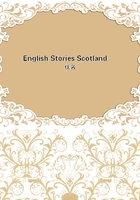
第29章
"Very masterly indeed," said I. "But who the deuce is Mhic-Mhac-vich-Induibh?"
" A bona-fide chief, I assure you, though a little reduced. I picked him up upon the Broomielaw. His grandfather had an island somewhere to the west of the Hebrides; but it is not laid down in the maps."
"And the Captain of M'Alcohol?"
"A crack distiller."
"And the Factor for Glentumblers?"
"His principal customer. But, bless you, my dear St. Mirrens! Don't bother yourself any more about the committee. They are as respectable a set--on paper at least--as you would wish to see of a summer's morning, and the beauty of it is that they will give us no manner of trouble. Now about the allocation. You and I must restrict ourselves to a couple of thousand shares apiece. That's only a third of the whole, but it won't do to be greedy."
"But, Bob, consider! Where on earth are we to find the money to pay up the deposits?"
"Can you, the principal director of the Glenmutchkin Railway, ask me, the secretary, such a question? Don't you know that any of the banks will give us tick to the amount 'of half the deposits.' All that is settled already, and you can get your two thousand pounds whenever you please merely for the signing of a bill. Sawley must get a thousand according to stipulation; Jobson, Heckles, and Grabbie, at least five hundred apiece; and another five hundred, I should think, will exhaust the remaining means of the committee. So that, out of our whole stock, there remain just five thousand shares to be allocated to the speculative and evangelical public. My eyes! Won't there be a scramble for them!"
Next day our prospectus appeared in the newspapers. It was read, canvassed, and generally approved of. During the afternoon I took an opportunity of looking into the Tontine, and, while under shelter of the Glasgow "Herald," my ears were solaced with such ejaculations as the following:
"I say, Jimsy, hae ye seen this grand new prospectus for a railway tae Glenmutchkin?"
"Ay. It looks no that ill. The Hieland lairds are pitting their best foremost. Will ye apply for shares?"
"I think I'll tak' twa hundred. Wha's Sir Polloxfen Tremens?"
"He'll be yin o' the Ayrshire folk. He used to rin horses at the Paisley races."
("The devil he did!" thought I.)
"D' ye ken ony o' the directors, Jimsy?"
"I ken Sawley fine. Ye may depend on 't, it's a gude thing if he's in 't, for he's a howkin' body.
"Then it's sure to gae up. What prem. d' ye think it will bring?"
"Twa pund a share, and maybe mair."
" 'Od, I'll apply for three hundred!"
"Heaven bless you, my dear countrymen!" thought I, as I sallied forth to refresh myself with a basin of soup, "do but maintain this liberal and patriotic feeling--this thirst for national improvement, internal communication, and premiums--a short while longer, and I know whose fortune will be made."
On the following morning my breakfast-table was covered with shoals of letters, from fellows whom I scarcely ever had spoken to,--or who, to use a franker phraseology, had scarcely ever condescended to speak to me,--entreating my influence as a director to obtain them shares in the new undertaking. I never bore malice in my life, so I chalked them down, without favouritism, for a certain proportion. While engaged in this charitable work, the door flew open, and M'Corkindale, looking utterly haggard with excitement, rushed in.
"You may buy an estate whenever you please, Dunshunner," cried he;"the world's gone perfectly mad! I have been to Blazes, the broker, and he tells me that the whole amount of the stock has been subscribed for four times over already, and he has not yet got in the returns from Edinburgh and Liverpool!"
"Are they good names, though, Bob--sure cards--none of your M'Closkies and M'Alcohols?"
"The first names in the city, I assure you, and most of them holders for investment. I wouldn't take ten millions for their capital."
"Then the sooner we close the list the better."
"I think so too. I suspect a rival company will be out before long.
Blazes says the shares are selling already conditionally on allotment, at seven and sixpence premium."
"The deuce they are! I say, Bob, since we have the cards in our hands, would it not be wise to favour them with a few hundreds at that rate?
A bird in the hand, you know, is worth two in the bush, eh?"
"I know no such maxim in political economy," replied the secretary.
"Are you mad, Dunshunner? How are the shares to go up, if it gets wind that the directors are selling already? Our business just now is to /bull/ the line, not to /bear/ it; and if you will trust me, I shall show them such an operation on the ascending scale as the Stock Exchange has not witnessed for this long and many a day. Then to-morrow I shall advertise in the papers that the committee, having received applications for ten times the amount of stock, have been compelled, unwillingly, to close the lists. That will be a slap in the face to the dilatory gentlemen, and send up the shares like wildfire."
Bob was right. No sooner did the advertisement appear than a simultaneous groan was uttered by some hundreds of disappointed speculators, who, with unwonted and unnecessary caution, had been anxious to see their way a little before committing themselves to our splendid enterprise. In consequence, they rushed into the market, with intense anxiety to make what terms they could at the earliest stage, and the seven and sixpence of premium was doubled in the course of a forenoon.